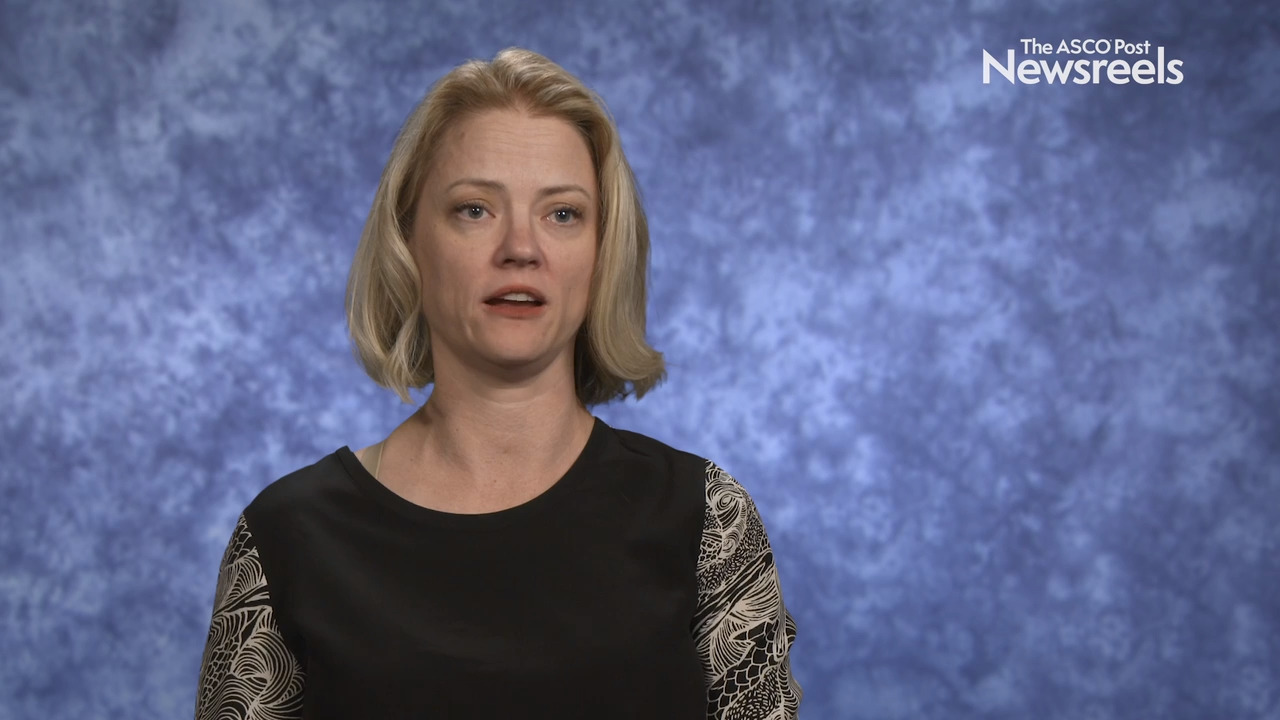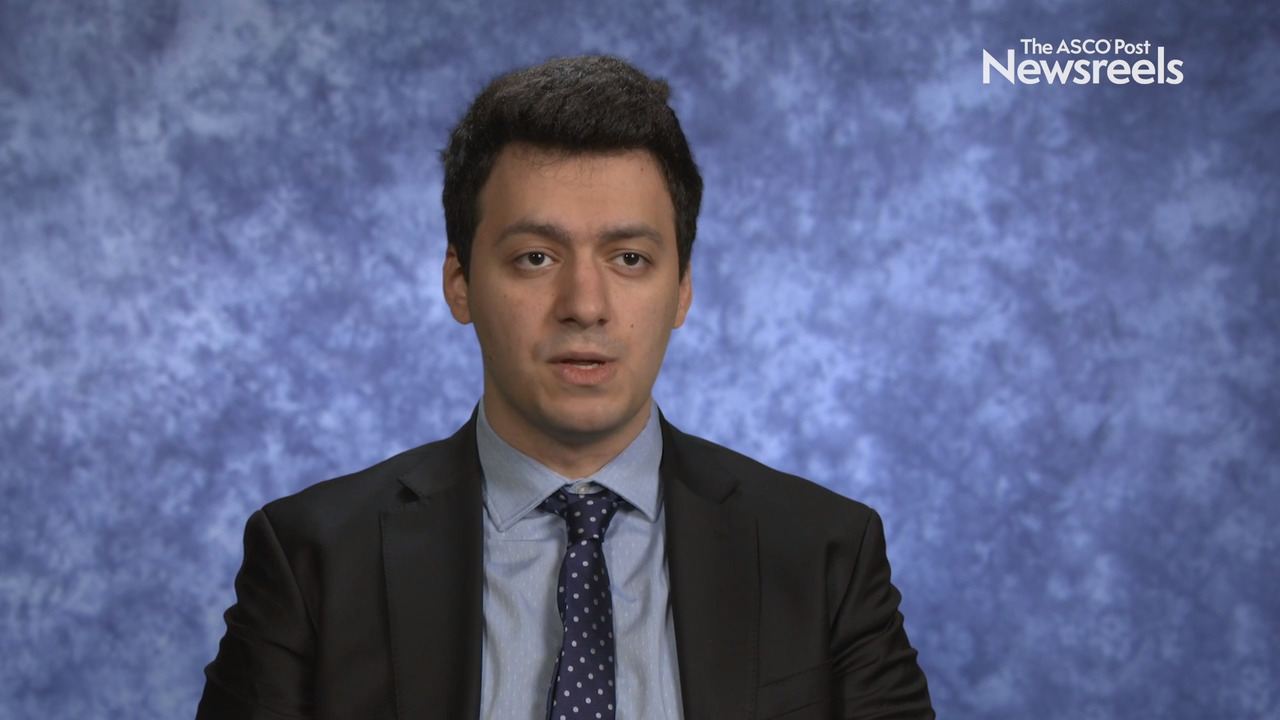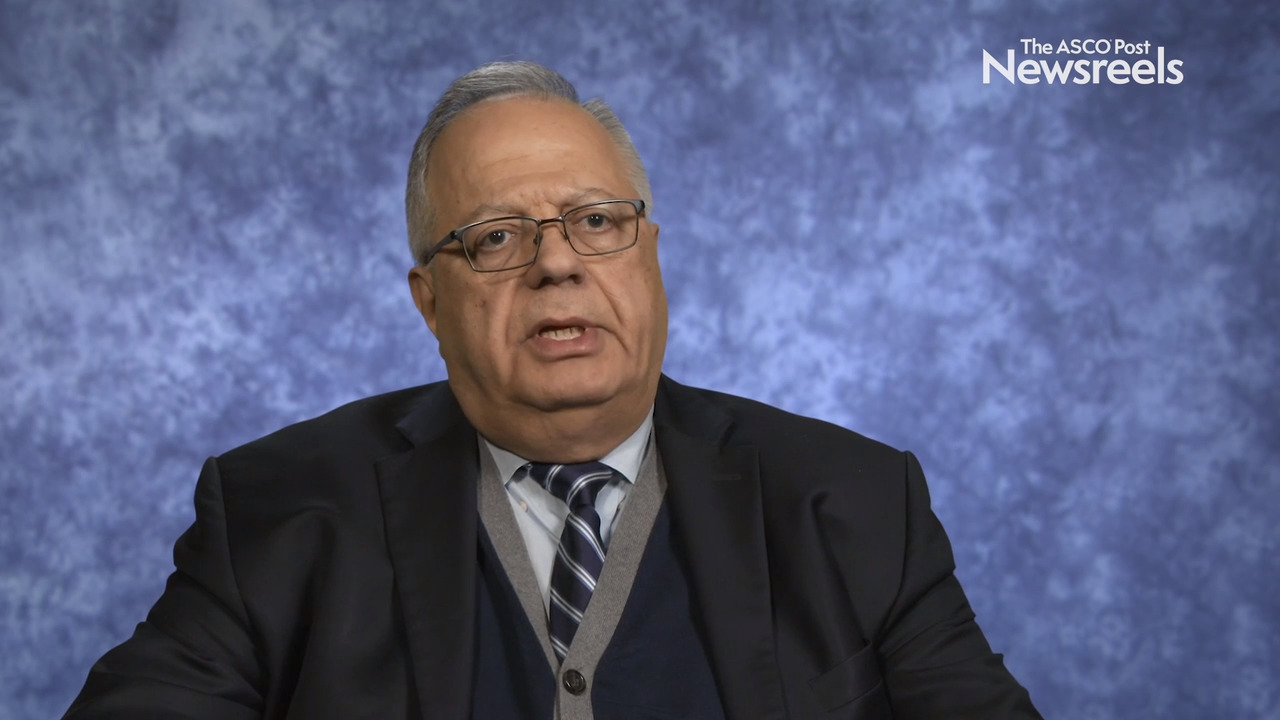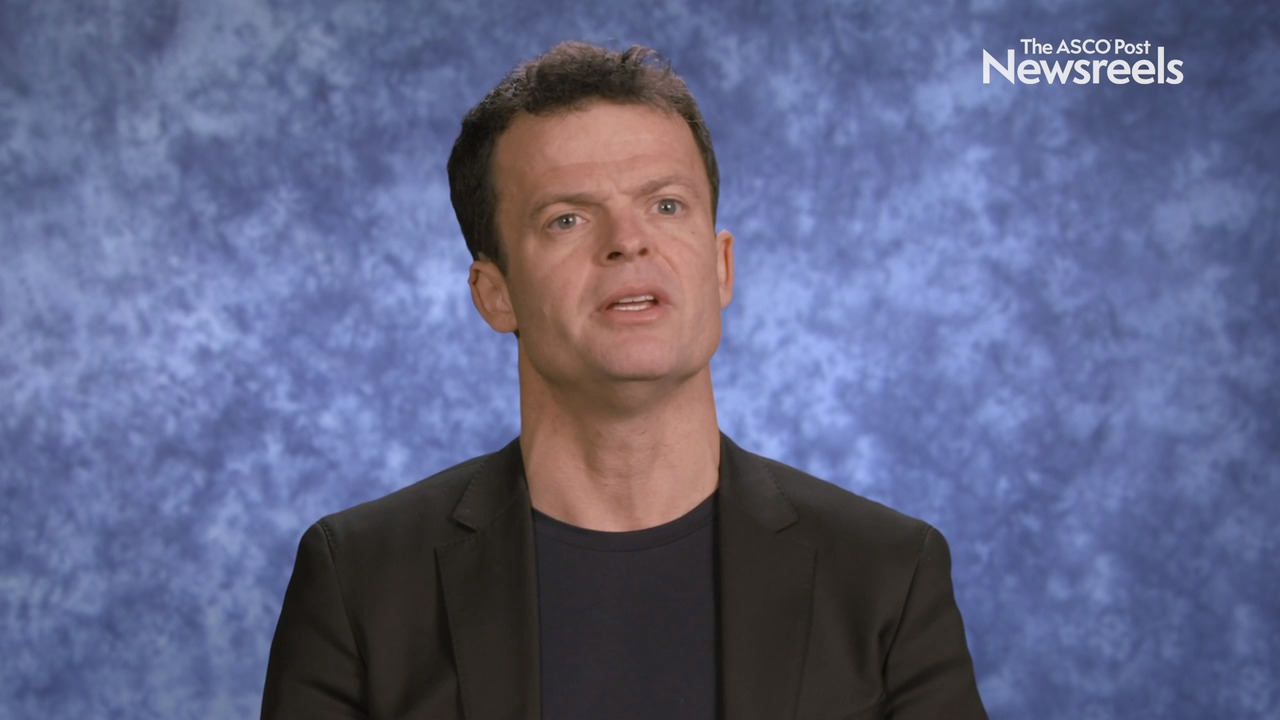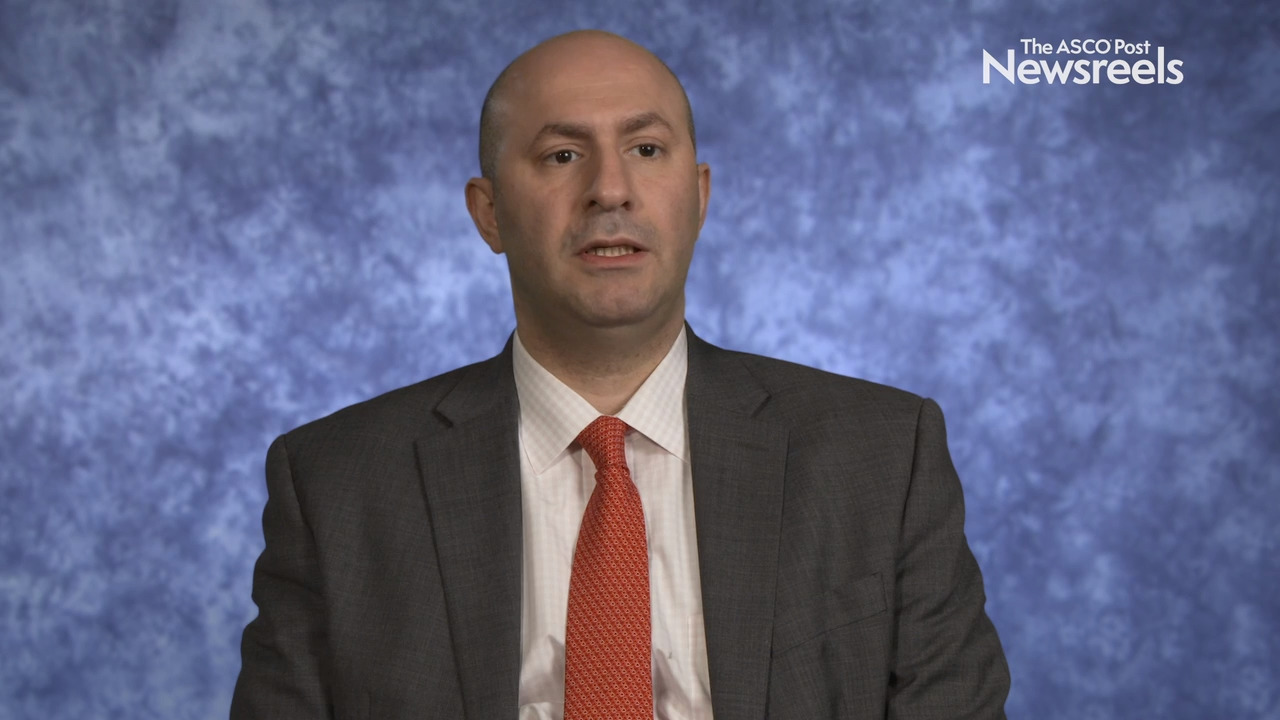Ziad Bakouny, MD, on Sarcomatoid and Rhabdoid RCC: Potential Determinants of Poor Prognosis and Treatment Response
2020 Genitourinary Cancers Symposium
Ziad Bakouny, MD, of Dana-Farber Cancer Institute, discusses two types of renal cell cancer that are associated with poor prognosis. Because recent early data suggest these tumors respond well to immune checkpoint inhibitors, the authors characterized the tumors in an integrative molecular and clinical study (Abstract 715).
The ASCO Post Staff
Julie N. Graff, MD, of Oregon Health & Science University and Knight Cancer Institute, discusses study findings that show pembrolizumab plus enzalutamide after progression on enzalutamide produced clinical activity and can lead to durable responses, with a manageable safety profile. The phase III KEYNOTE-641 trial will test patients who are enzalutamide-naive (Abstract 15).
The ASCO Post Staff
Ziad Bakouny, MD, of Dana-Farber Cancer Institute, discusses the controversial and ill-defined role of cytoreductive nephrectomy in treating patients with metastatic renal cell carcinoma who have received targeted therapies or immune checkpoint inhibitors (Abstract 608).
The ASCO Post Staff
Nizar M. Tannir, MD, of The University of Texas MD Anderson Cancer Center, discusses overall survival and an independent review of response in CheckMate 214 with 42-month follow-up, using first-line nivolumab plus ipilimumab vs sunitinib in patients with advanced renal cell carcinoma (Abstract 609).
The ASCO Post Staff
Thomas Powles, MD, PhD, of Queen Mary University of London, summarizes two papers on metastatic renal cell carcinoma for which he was the discussant: nivolumab in combination with stereotactic body radiotherapy in pretreated patients, and combining dual immune checkpoint inhibition with stereotactic radiation (Abstracts 613 & 614).
The ASCO Post Staff
Toni K. Choueiri, MD, of Dana-Farber Cancer Institute, describes a currently recruiting phase III study (COSMIC-313) of cabozantinib in combination with nivolumab and ipilimumab vs nivolumab/ipilimumab for patients with previously untreated advanced renal cell carcinoma of intermediate or poor risk (Abstract TPS767).
